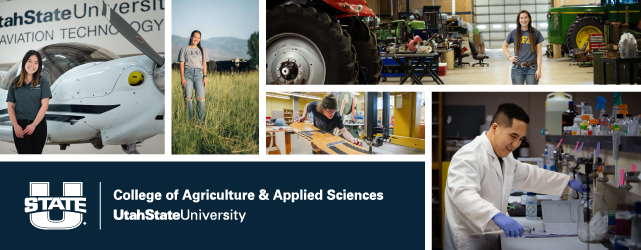Document Type
Poster
Journal/Book Title/Conference
American Association for Agricultural Education National Conference
Location
Charleston, South Carolina
Publication Date
5-15-2018
Award Number
USDA, National Institute of Food and Agriculture (NIFA) 2017-68010-25960
Funder
USDA, National Institute of Food and Agriculture (NIFA)
Creative Commons License

This work is licensed under a Creative Commons Attribution 4.0 License.
Abstract
While agriculture teachers may focus on guiding students into agricultural and natural resource career pathways, many have expressed the need to prepare existing and upcoming agricultural educators with a more extensive set of skills and knowledge to better prepare students for a broader scope of career opportunities in agriculture. Agricultural education programs are expanding across the country, including more programs in urban areas, but agricultural education teachers often have little exposure or experiences related to less traditional agricultural careers that might be found in urban areas. Furthermore, agriculture teachers are often prepared to teach agricultural content through coursework that is very prescriptive and focuses on skill and concept development for set of traditional careers in agriculture (e.g., livestock production). Few teachers are equipped to prepare students for success in agricultural careers in urban and suburban areas or with alternative production and marketing methods that small-scale farmers use. As a result, many students are not adequately prepared for these viable agricultural career options within their local or regional settings. Agriculture teachers simply lack the experience, skills, and knowledge to address these critical issues, and they have indicated a need for professional development in areas of new and emerging careers and technology (Perkins, Sorensen, Hall, Dallin, & Francis, 2017). This study fits Priority Three of the National American Association for Agriculture Education (AAAE) Research Agenda, specifically addressing the need for preparing people to work in a global agriculture and natural resources workforce (Roberts, Harder, & Brashears, 2016). The purpose of this study was to evaluate agriculture education teachers’ knowledge, confidence, and level of importance of integrating urban and non-traditional agriculture concepts into their curriculum and Supervised Agricultural Experiences (SAEs).
Recommended Citation
Cromer, Ashlee; Hall, Kelsey; Sorensen, Tyson; Francis, David; and Dallin, Joshua, "Utah Agriculture Teachers’ Perceptions of Teaching Urban and Non-Traditional Agriculture Content" (2018). Applied Sciences, Technology, and Education Student Research. Paper 12.
https://digitalcommons.usu.edu/aste_stures/12


